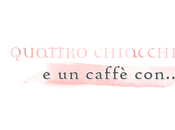
From the Italian Movie: Pane, amore e gelosia
The big Italian family is an essential element of our lives. The secret is to analyze where the definition of the family finishes. Usually our definition also includes second-or third-degree of the relatives. Several times I have called “uncle or aunt “ some relatives who are the sister or the brother of my grandmother , so "technically" they are not exactly “ uncles or aunts”.Of course, to not wrong someone I call everybody “uncle and aunt or cousin” (even if they are not the “first line” of the relatives).
With the degree of kinship I can be easily deceived: I make a incredible effort to understand who is what! An example? Have you ever heard:" He is the son of my cousin's mother-in-law." The question arises in my mind every time: “I'm sorry I did not understand ... who is he?” The person usually look at me with an annoyed expression, and he/she repeated me all -articulating the words: "the s-o-n of my c-o-u-s-i-n's m-o-t-h-e-r-in-l-a-w." Ok I have not understand as before. So to sum up: who is he ? "Marco". Ah ... Marco! It was so easy!
However -since we entered into the magical world of the family relationships - I’m going to puzzle you (unless you are expert in the family trees, so it would be absolutely impossible to mix you up!). We had already seen the close relations. However, we miss some relationships.
In case of marriage we have the loved / hated daughter – in -law = nuora and son – in – law= genero.The two people married are called are coniugi = spouse (this word is quite old) or sposi = bride and groom. Today we don’t get married so frequently and the partner = convivente ( the person who lives with you and there is a love affair) is also called compagno or compagna ( for the women) . This will be defined coppia di fatto = common law couple. If the two persons are not married but they are going to do, so they are called fidanzati = fiancés
Not every relatives are defined “uncles and cousins” - as I call them to simplify my life: there are pro-zii =pro-uncles, pro-pro zii tris nipoti and an endless series of subgroups. I would say that the big family, in my opinion can stop at these bonds . Otherwise, where we put all these relatives at Christmas and Easter lunch? Post related http://www.learnitalianow.net/2013/01/the-italian-family-pornunciation-of.html http://www.learnitalianow.net/2013/01/the-italian-family-names-in-italian.html

The Italian family from Natale in Casa Cupiello
( Edoardo de Filippo)




